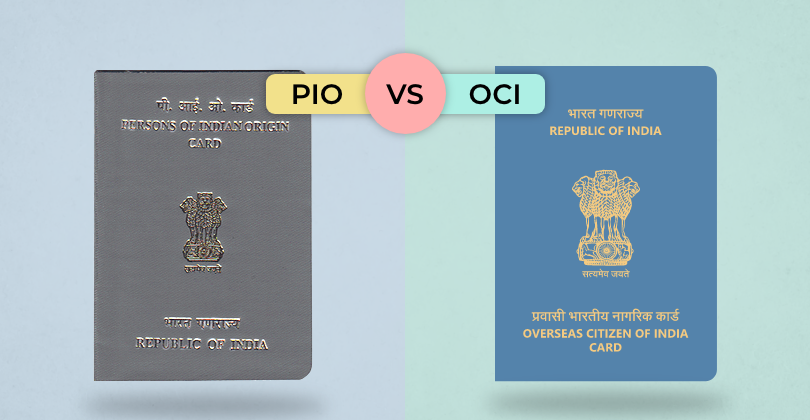Are you of Indian origin and living abroad? You've probably come across terms like PIO and OCI. These cards offer different benefits, but it can
Obtaining a personal loan is a common strategy to meet various financial needs, such as funding education, covering medical expenses, consolidating debt, or making a significant purchase. When applying for a personal loan, one of the key factors that lenders scrutinise is the borrower's gross income. Gross income plays a pivotal role in the loan approval process, influencing the loan amount, interest rate, and overall financial viability of the borrower.
This article delves into the importance of gross income while taking a personal loan, highlighting why it matters and how borrowers can optimise this crucial aspect of their financial profile.
📗 Related reading- How to Check Personal Loan Eligibility Online: A Comprehensive Guide
Understanding Gross Income
Gross income, also known as pre-tax income, represents the total earnings of an individual before any deductions, such as taxes, insurance, or retirement contributions. It encompasses various sources of income, including wages, bonuses, rental income, alimony, and any other inflows that contribute to the individual's overall finances.
Lenders consider gross income as a fundamental metric when evaluating a borrower's ability to repay a personal loan.
Determining Loan Eligibility
The gross income of a borrower is a primary determinant of their eligibility for a personal loan. Lenders use a Debt-to-Income (DTI) ratio to assess how much of an individual's gross income goes towards servicing existing debts. The DTI ratio is calculated by dividing the total monthly debt payments by the gross monthly income, expressed as a percentage. A lower DTI ratio indicates a healthier financial position and enhances the likelihood of loan approval.
Most lenders have specific DTI ratio thresholds that applicants must meet to qualify for a personal loan. These thresholds typically range from 40% to 50%, meaning that the total debt payments, including the prospective loan, should not exceed 40-50% of the borrower's gross income. Maintaining a lower DTI ratio not only improves the chances of loan approval but also indicates responsible financial management.
Loan Amount and Interest Rates
Gross income significantly influences the maximum loan amount a borrower can qualify for. Lenders generally cap the loan amount based on a percentage of the borrower's gross income. A higher gross income allows for a larger loan amount, providing borrowers with the financial flexibility to meet their specific needs.
Moreover, gross income plays a crucial role in determining the interest rate assigned to a personal loan. Lenders often use the Debt Service Coverage Ratio (DSCR) to assess the risk associated with lending money to an individual. This ratio compares the borrower's gross income to their total debt obligations.
A higher gross income leads to a more favourable DSCR, signalling to lenders that the borrower has the financial capacity to comfortably meet their debt obligations. Consequently, borrowers with higher gross incomes may secure lower interest rates, resulting in reduced overall borrowing costs.
Stability and Reliability
Lenders also assess the stability and reliability of a borrower's income when evaluating a personal loan application. A consistent and reliable gross income stream enhances the borrower's creditworthiness, instilling confidence in the lender regarding the borrower's ability to make timely loan payments. Employment history, industry stability, and the nature of income sources all contribute to this assessment.
In the eyes of lenders, a stable gross income is an indicator of financial responsibility and reduces the perceived risk associated with lending to the individual. Those with irregular or unpredictable income streams may face greater scrutiny or higher interest rates due to the perceived higher risk.
Tips for Optimising Gross Income for Personal Loan Approval
Here's a closer look at the importance of gross income and tips on optimising it for a smoother personal loan approval process.
-
Document all income sources: Ensure that all sources of income are properly documented and accounted for. This includes not only salary but also bonuses, rental income, alimony, and any other supplemental income. A comprehensive view of gross income provides lenders with a clearer picture of the borrower's financial capacity.
-
Improve employment stability: Lenders often favour borrowers with a stable employment history. Consistent employment in a particular industry or with a specific employer enhances the borrower's reliability in the eyes of the lender. If possible, try to secure employment with a well-established and reputable company to strengthen your loan application. It is advisable to undertake a full-time assignment, which is considered more favourable than freelancing or consulting jobs.
-
Debt management: Prioritise paying off existing debts to improve your DTI ratio. A lower DTI ratio not only enhances loan eligibility but also positions you as a responsible borrower. Consider debt consolidation strategies to streamline payments and potentially reduce interest rates.
-
Increase income: While it may not be immediately feasible, consider avenues for increasing your gross income. This could involve negotiating a salary raise, taking on additional part-time work, or exploring new sources of passive income. A higher gross income not only improves loan eligibility but also opens doors to larger loan amounts and better interest rates.
Conclusion
In the world of personal finance, understanding the significance of gross income when applying for a personal loan is essential. A robust gross income not only determines eligibility but also influences the loan amount, interest rates, and overall financial feasibility.
Borrowers must be proactive in optimising their gross income by documenting all income sources, improving employment stability, managing existing debts, and exploring opportunities for income growth.
By recognizing the importance of gross income in the loan approval process, individuals can make informed financial decisions, secure favourable loan terms, and achieve their financial goals responsibly.
AUTHOR
KreditBee As a market leader in the Fintech industry, we strive to bring you the best information to help you manage finances better. These blogs aim to make complicated monetary matters a whole lot simpler.







